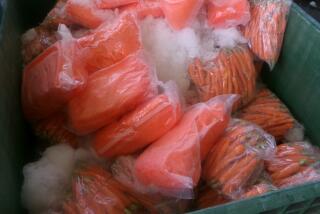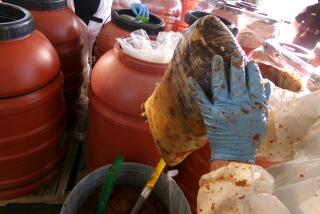Truck carrying dangerous radioactive material stolen in Mexico
A truck carrying dangerous radioactive material used in medical treatments was stolen in central Mexico, the United Nations nuclear watchdog agency said Wednesday.
Mexico informed the Vienna-based International Atomic Energy Agency that the truck was carrying cobalt-60, which is used in radiation therapy to treat cancer.
The material was being transported from a hospital in the northern city of Tijuana to a radioactive waste storage center when the theft occurred Monday in Tepojaco, a town near Mexico City, the IAEA said in a statement.
“At the time the truck was stolen, the [radioactive] source was properly shielded,” the statement said. “However, the source could be extremely dangerous to a person if removed from the shielding, or if it was damaged.”
In Mexico City, authorities said they believed the thieves were going after the truck, not the radioactive material. Still, the theft raised the possibility of a series of nightmarish scenarios, should the material fall into the wrong hands in a country where violent drug and extortion gangs dominate many areas.
At a nuclear security summit in South Korea last year, IAEA Director General Yukiya Amano identified cobalt-60 as one of the materials that could be used with conventional explosives to make a so-called dirty bomb.
Mexican officials sought the public’s help in recovering the radioactive material while at the same time cautioning against opening the protective shielding or coming into contact with the material. The search was taking place in six states and the capital.
[For the record, 12:44 p.m. Dec. 4: An earlier version of this post incorrectly said that the theft was announced Tuesday. The announcement was made Wednesday.]
ALSO:
Biden arrives in China amid tensions over air defense zone
Nelson Mandela not well but still teaching lessons, his family says
U.S. halts truck shipments through Pakistan amid anti-drone protests
Twitter: @alexzavis
Times staff writer Tracy Wilkinson in Mexico City contributed to this report.
More to Read
Sign up for Essential California
The most important California stories and recommendations in your inbox every morning.
You may occasionally receive promotional content from the Los Angeles Times.










